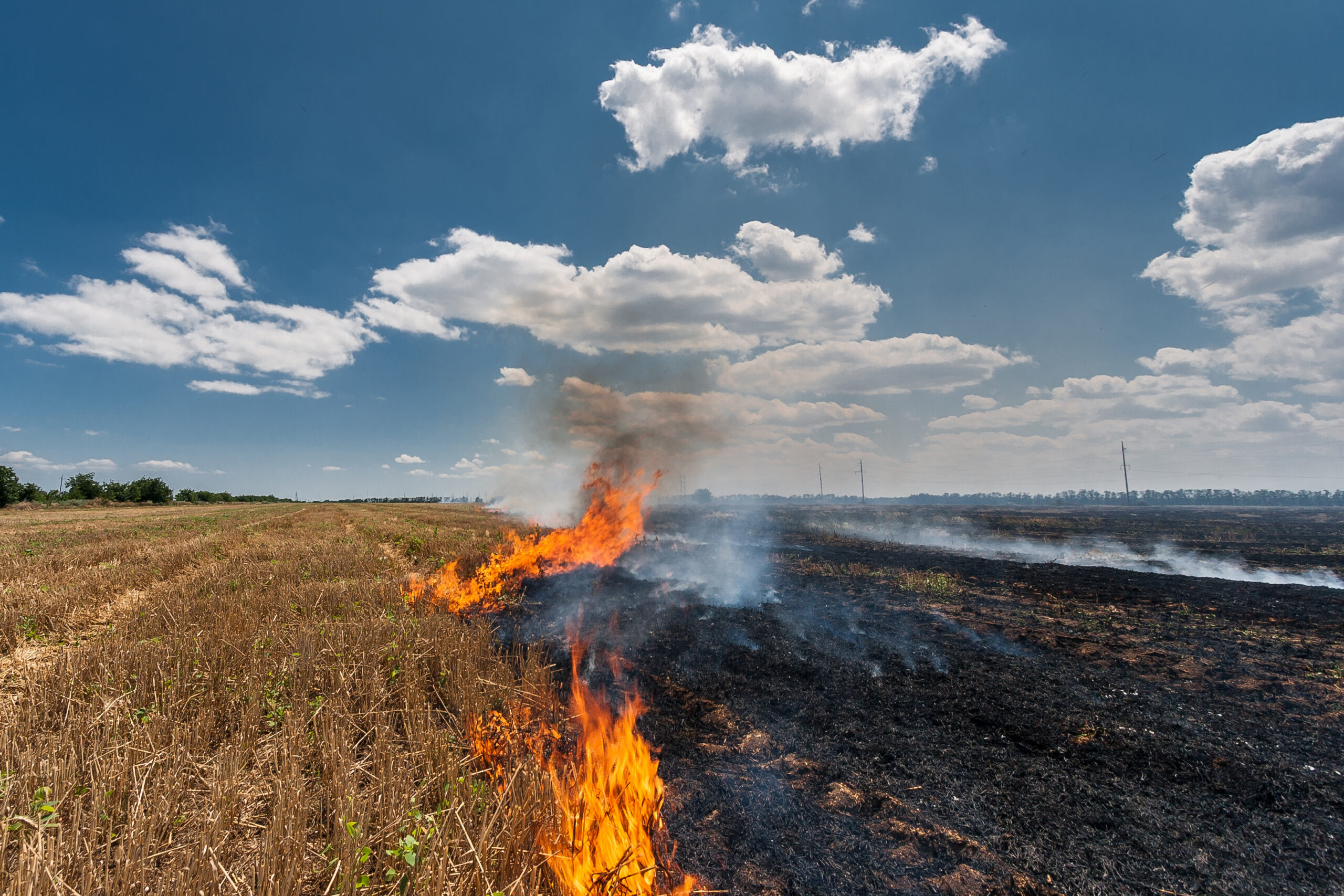When I was a teen, my father inherited the farm where we lived after my grandfather passed away. Our farm was in the Midwest where the land is flat and you can see forever; this was the farm-belt, the land of corn and soybeans. The house itself was in a huge yard bordered by fields.
My father decided to buy a few calves that would graze on a 20-acre field located directly south of the house. The view out our kitchen window faced south, and if you looked out, you could see a huge tree that shaded a portion of the yard, a large propane gas tank that provided gas for cooking and to the clothes dryer, and then the field beyond it. The field had been idle for over a year and become overgrown with old grass and weeds. The calves would soon take care of that.
Before the calves could be brought to the farm, the fence along the road had to be repaired. The side ditch had been allowed to overgrow as well. My younger brother and I were assigned the responsibility to take down the existing fence, replace any fence posts that were in disrepair, and then attach new fencing. My folks worked jobs outside the farm, and I was the oldest at home, so my three younger siblings were routinely left in my care, and I was in charge of the work Dad assigned to us.
To better understand what is coming next, you have to understand that my siblings and I were afraid of snakes, and our farm suffered no lack of them. I remember many times running out the front door and jumping over the front steps, only to look back to see a large black snake coiled up on the steps taking a sun bath. I remember too my father regularly taking the garden hoe and chopping the heads off and disposing of the bodies.
The day our work began on the fence was a sunny day in late spring. My brother and I decided we would burn the side ditch off just in case there were snakes in the ditch. (My brother might claim this was solely my idea.) The bonus was that this would make it easier to work while pulling the old fence down. So we took an old newspaper and matches and started a small fire, which took about one minute to become a huge fire. Because the field was so overgrown, it burned and spread quickly.
Remember the propane tank? Well, we had forgotten about that too when we made our “plan.” The fire quickly spread toward the tank. Fortunately, a neighboring farmer noticed what was happening as he was headed back to his farm, and he lost no time coming with a tractor and plow. He plowed a furrow to keep the fire from being able to spread any further toward the tank.
Our farm was approximately seven miles from the closest rural fire department—all volunteer. You can imagine by the time the call was made and the siren sounded to call the volunteers that much time passed before they arrived. The field had almost burned completely before their arrival.
In the course of my life in business, I have witnessed and heard stories of business owners and management personnel who have made business decisions without fully assessing the current business environment, considering current market or industry risks, or weighing the consequences of their decisions. Successful decision-making demands that owners and managers take the time to stay current with industry changes, keep abreast of new technologies, and stay in touch with economic conditions that may affect their business. This awareness, coupled with risk analysis, is critical to success. Many companies fail, or see others pass them by, because the time and effort was not spent in analyzing how the business needed to change or make course corrections to maintain market share and profitability.
Where did my brother and I fail the day we lost control of a fire meant to burn a fence row? First, we did not consider the velocity of the wind, which was coming out of the northwest and blowing to the southeast, toward the area of the field. Second, we did not assess how dry and dense the undergrowth was, and how quickly it might burn. Third, we had no plan to control the burn. Last, we never even considered the danger of using fire as a means to accomplish what we needed in clearing the fence row. But the most critical mistake made that day was letting our fear of snakes drive our quick and unthoughtful decision. This is how we ended up burning nearly 20 acres, potentially endangering my younger siblings, and nearly catching a propane tank on fire.
Like me and my brother, many people only consider the entry into something but fail to consider the consequences or exit from the decision. As a business owner or manager, you owe it to yourself, your customers, your vendors, your employees, and other stakeholders to carefully consider the risks and benefits to your decisions. Fear is never a helpful partner in decision-making. If you are afraid or worried about your competition or other events affecting your business, do not allow emotion to cloud your thinking and disrupt your decision-making process.
In my next article I will share how my father, an important “stakeholder,” responded to the result of my decision, and the course of action he took.
_________________
About the Author:
Kevin P. Clouser is a financial and accounting professional and serves as a consultant and business development representative for NOW CFO. In his spare time, Kevin enjoys hosting the CLOUSER ON BUSINESS podcast found on iTunes and other podcast platforms.
© Clouser On Business, July 2020

